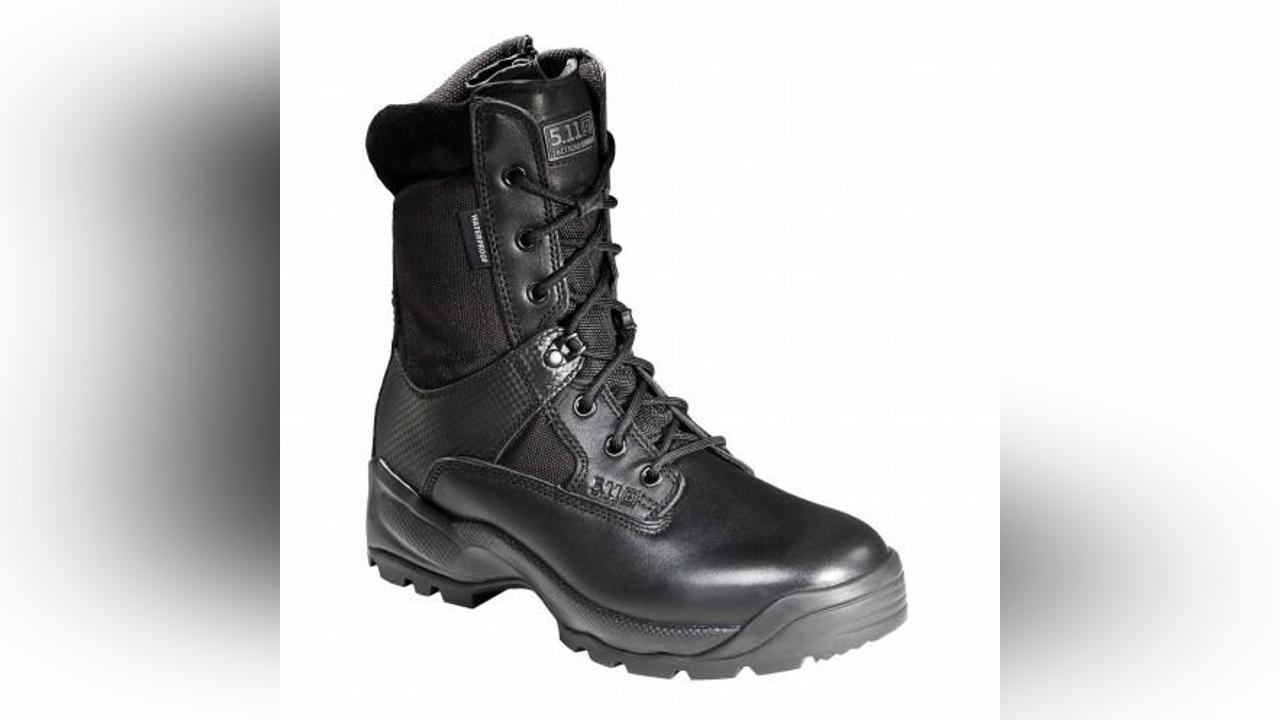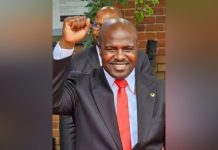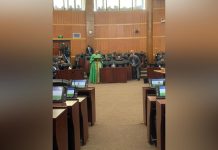Africa-Press – Lesotho. A loud knock startled Kabelo Khabanyane from his sleep at 4:15am. “It’s the police, open the door!” a male voice ordered. When Khabanyane asked how he could be sure they were the police, they kicked the door open and dragged him out.
Outside, the six police officers threw him to the ground and took turns kicking and beating him with a sticks. They made him roll for about 15 metres while beating and kicking him.
His back, elbows and ribs were injured. And his right hand became numb with pain. A few minutes later, Khabanyane’s wife came out and handed him his walking stick.
When his mother told them that he was blind, the police officers asked: “What kind of a blind person is this who wants to know our identities”. They also asked why a blind man could be “so talkative”.
Ironically, the police had wanted him to tell them about a crime incident that had happened the previous day. Khabanyane was therefore not a suspect but a potential witness.
This week the High Court awarded M150 000 in damages to Khabanyane for the pain and humiliation he suffered at the hands of the police during the incident that happened in December 2015.
The judgement, delivered by Chief Justice Sakoane Sakoane, is yet another dark mark on the police’s notorious record of using excessive force against civilians.
As has become common in such lawsuits, the police denied the victim’s account of the event. Constable Seboka Tsanyane, who was the police’s only witness, said while they waited for him to come out of the house they heard him say “bring my stick”.
He said they told Khabanyane to leave the stick behind but he brought it out anyway. Constable Tsanyane said he grabbed the stick as Khabanyane was walking out.
He said it was during that attempt to wrestle the stick from Khabanyane that he fell. He also denied that Khabanyane was beaten and kicked but also admitted that he never tried to attack the police officers with his stick.
An eyewitness however contradicted Constable Tsanyane’s evidence and corroborated Khabanyane’s testimony almost word for word. Justice Sakoane said he found Constable Tsanyane’s denials fanciful and hollow.
Khabanyane had claimed a total M500 000 in damages but Justice Sakoane reduced it to M150 000 after reasoning that the injuries did not cause “immediate or long-term disability”.
“The degree of force used to inflict the injuries is mild,” he said. Justice Sakoane had harsh words for the police, calling on the police management to prosecute officers accused of assault, torture and murder.
But perhaps the most critical part of the judgement, apart from delivering justice for Khabanyane, is his analysis of what he called the “direct and indirect enabler of police brutality” and his recommendations on how to deal with the scourge (Read the sidebars for his diagnosis and recommendation).
He said the Police Complaints Authority “does not bite simply because, in the first place, it was never intended to bite”. “It lacks the power to directly receive complaints from victims –let alone powers to investigate and prosecute,” Justice Sakoane said.
Justice Sakoane said since Khabanyane was not suspected of committing any crime, “the police had no business at all disturbing him in his sleep, ordering him to come out of the house, forcefully entering and pushing him out of and beating him”.
“This disrespect of plaintiff’s rights to privacy, invasion of his home and liberty was completely unnecessary, unjustified and legally impermissible.
The police should not have touched his body at all. Their aggression and resort to use of force were unwarranted and unlawful,” he said. Justice Sakoane said Khabanyane had also suffered humiliation “at a time and hour of his comfort”.
“He was rudely woken up and assaulted in front of his wife and other villagers. The police behaved in a violent and intimidatory manner and even mocked him when informed that he has a visual disability.
“The plaintiff did not pose any danger to them (police), but even if he posed a danger, he was perfectly within his rights as a law-abiding citizen to protect his home, himself and wife from all manner of strangers,” Justice Sakoane said.
He said the “high-handed and undignified manner in which the police treated the plaintiff had the effect of bruising his personal feelings, demeaning his pride and integrity”.
Populist utterances by politicians who encourage use of force by the police with the aim of deterring criminal conduct and extracting information from suspects.
Such utterances appease an electorate that is reeling under high levels of crime. Lack of political will to enact a distinct anti-torture legislation and failure to prosecute members of the security services implicated in cases of torture.
This encourages the police to torture suspects in order to extract information. Failure to prosecute those found liable for assaults and torture by the courts in civil cases.
This leads to the conclusion that assaults and torture are condoned by those in authority and are thereby institutionalised. Weak investigation machinery in the offices of the Police Complaints Authority and the Ombudsman in instances where citizens lodge complaints of police assaults.
The Commissioner of Police has a hopeless conflict of interest in that he has to investigate complaints of police brutality simultaneously with charges brought by the police against the very victims.
Lack of accountability and consequence management. Supervision is bad and it is common to promote officers with a history of complaints. Absence of meaningful disciplinary action and failure to act on citizens’ complaints breed a culture tolerant of abusive police behaviour.
Effective and successful investigations and prosecutions demand close cooperation between the prosecution and police investigating those accused of brutality.
Where investigations are not prosecution led, the prosecution has little, if no choice, but to rely on inherently biased investigations conducted by police against their colleagues.
A problem exists in cases where the only witnesses to prove brutality are police officers and there is no forensic evidence. They are often reluctant to testify against each other.
Such behaviour encourages the “the blue wall of silence”, which prevents thorough investigations. Dominance of decision-making by prosecutors in criminal prosecutions ensures that they are the gate-keepers that decide who gets prosecuted and not prosecuted.
Prosecutors are not obliged to consider the views of victims of crime when making decisions declining to prosecute and do not have to provide them with an explanation for declining.
Thus, prosecutors can close the avenue of prosecutions for police brutality. Prosecutors often fall back on their discretion to decline to prosecute rather than pursue the victims’ complaint.
Those among them who tolerate police perjury in order to establish good working relationships overlook excessive use of force by the police. In criminal proceedings, it is more difficult to get a conviction because of the higher threshold of proof beyond reasonable doubt that the police officer used excessive force with intent.
Absent a conviction, the victim’s prospects for getting compensation from the accused are nil. Courts impose moderate sentences because they are often insensitive to the fact that police brutality is an abuse of power and authority deserving harsh sentences.
Recommendations for tackling the aforementioned enablers of police brutality are: Enactment of a distinct anti-torture legislation with heavy criminal sanctions. Provision for redress for victims of torture that is not limited to monetary compensation but includes medical treatment and psychological support.
Creation of an independent statutory body outside police control to receive citizen’s complaints of serious injuries and deaths and to investigate and prosecute police officers.
Development of a national and standardized system of receiving and recording complaints against police officers. Assigning this to the independent statutory body may encourage victims distrustful of the police to come forward and report abuses when they might otherwise not do so.
Collection of data on complaints, its analysis and disaggregation will enable the statutory body to discern patterns of abuse and support civil claims.
This will deter the police from sanitizing their records, force them to acknowledge the culture of police violence and expose those that have failed to discipline the offending officers. Provision of adequate resources to enable investigations and prosecutions agencies to effectively discharge their constitutional mandates.
For More News And Analysis About Lesotho Follow Africa-Press






